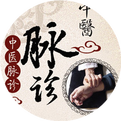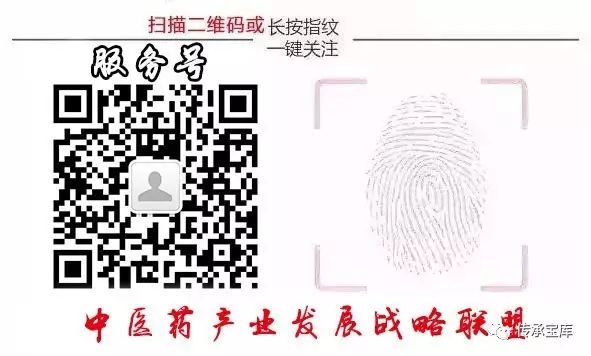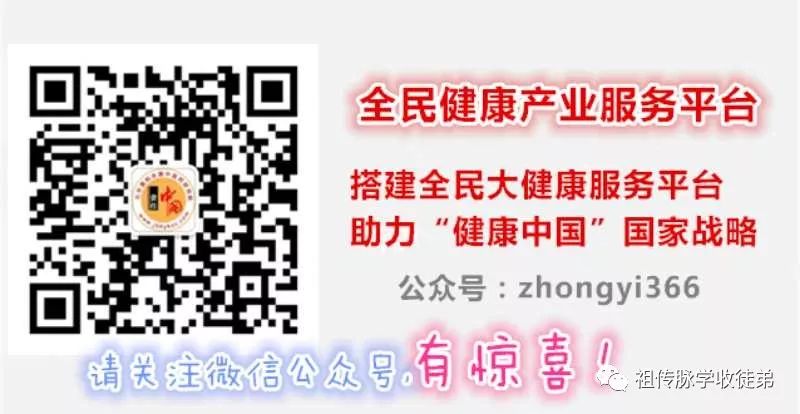In the general practice of Traditional Chinese Medicine (TCM), the four diagnostic methods of “observation, listening, inquiry, and palpation” are emphasized to differentiate syndromes, followed by the selection of herbal treatments based on the identified “syndrome.” Have you heard of correlating pulse diagnosis with specific herbal remedies to directly guide prescription? Today, we will explore the “Pulse Diagnosis and Herbal Treatment” theory of the renowned Qing Dynasty physician, Long Bai.
Floating Pulse
【Original Text】Floating pulse is due to wind; for exterior symptoms, it is advisable to disperse. Common herbs include Qiang Huo (Notopterygium), Gan Cao (Licorice), Gao Ben (Ligusticum), Fang Feng (Siler), Xi Xin (Asarum), Bai Zhi (Angelica dahurica), Cang Zhu (Atractylodes), Chuan Xiong (Ligusticum chuanxiong), Huang Qin (Scutellaria), and Bo He (Mint), along with fresh ginger and scallions, adjusting according to the cold and heat conditions.
【Translation】The appearance of a floating pulse is often due to an external wind pathogen, indicating an exterior syndrome. Treatment should employ dispersing methods, commonly using herbs such as Qiang Huo, Gan Cao, Gao Ben, Fang Feng, Xi Xin, Bai Zhi, Cang Zhu, Chuan Xiong, Huang Qin, and Bo He, supplemented with fresh ginger and scallions. The rational use of these herbs should be carefully considered based on the nature and location of the disease during clinical practice.
【Analysis】The herbs listed correspond to Zhang Yuan’s Qiang Huo Chong He Decoction, which substitutes Di Huang (Rehmannia) with Gao Ben and Bo He. If the patient presents with headache, fever, floating pulse, and a normal rhythm, this indicates an exterior wind syndrome. If a Yangming pulse is large, with nasal congestion, pain in the brow ridge, and a white tongue coating, one may add Sheng Ma (Cimicifuga) and Ge Gen (Pueraria). If a Taiyang pulse is large, with lower back pain, one may add Gui Zhi (Cinnamon twig) and Xing Ren (Apricot kernel). If a Shaoyang pulse is large, with pain in the sides and temples, Chai Hu (Bupleurum) may be added. If there is heaviness at the vertex, Tian Ma (Gastrodia) can be included. For stiffness in the neck, Qin Jiao (Gentiana) may be added; if phlegm is present in the upper body, one can add Qian Hu (Peucedanum), Dan Nan Xing (Arisaema), Zhi Ban Xia (Pinellia), Chen Pi (Tangerine peel), and other phlegm-transforming herbs; for aversion to cold, Su Ye (Perilla) can be added. The dosage of herbs should be determined based on the condition.
Deep Pulse
【Original Text】Deep pulse indicates interior conditions, either Qi stagnation or accumulation. A soft pulse indicates Qi stagnation, while a strong pulse indicates accumulation. For treating accumulation, one should use purgative methods, and for Qi stagnation, one should regulate and tonify. Purgative herbs include Da Huang (Rhubarb), Zhi Shi (Bitter Orange), Hou Po (Magnolia), and Mang Xiao (Glauber’s salt), which can clear the body of accumulation; Mu Xiang (Aucklandia), Bing Lang (Areca), San Leng (Sparganium), and E Zhu (Curcuma) can clear heat and drain dampness. For patients with a soft deep pulse, treatment should focus on regulating Qi and dispersing stagnation, using Xiang Fu (Cyperus), Shen Qu (Malt), Zhi Zi (Gardenia), Chuan Xiong, Shan Zha (Hawthorn), Mai Ya (Barley), Chen Xiang (Aquilaria), Wu Yao (Lindera), and Ren Shen (Ginseng) for Qi tonification. These herbs can relieve abdominal and flank distension.
【Translation】A deep pulse indicates an interior syndrome, which may be due to Qi stagnation or internal accumulation. A soft pulse indicates Qi stagnation, while a strong pulse indicates accumulation. For treating accumulation, purgative methods are recommended, while for Qi stagnation, regulation and tonification are necessary. Purgative herbs include Da Huang, Zhi Shi, Hou Po, and Mang Xiao, which can eliminate internal accumulation; Mu Xiang, Bing Lang, San Leng, and E Zhu can clear heat and drain dampness. For patients with a soft deep pulse, treatment should focus on regulating Qi and dispersing stagnation, using Xiang Fu, Shen Qu, Zhi Zi, Chuan Xiong, Shan Zha, Mai Ya, Chen Xiang, Wu Yao, and Ren Shen to tonify Qi, which can alleviate abdominal and flank distension.
【Analysis】A deep pulse indicates that Qi and blood are not adequately filling and moving through the vessels. The underlying causes may include Qi deficiency, blood deficiency, or the presence of tangible accumulations obstructing Qi and blood flow. Tangible accumulations may include phlegm, dampness, food stagnation, blood stasis, or heat toxins. If caused by Qi deficiency, treatment should tonify Qi and regulate it, using Si Jun Zi Tang (Four Gentlemen Decoction) with modifications. If caused by blood deficiency, treatment should nourish blood and invigorate blood circulation while regulating Qi, using Si Wu Tang (Four Substance Decoction) with Xiang Fu and Mu Xiang. If there is blood heat, one should add Sheng Di (Rehmannia), Chi Shao (Red Peony), Dan Pi (Moutan), Zhi Mu (Anemarrhena), and Huang Bai (Phellodendron). If due to accumulation obstructing the interior, treatment should regulate Qi and resolve stagnation, but appropriate methods should be used based on the type of accumulation. If due to heat toxins, one should clear heat and detoxify, using Huang Qin, Huang Lian (Coptis), Zhi Zi, and Xia Ku Cao (Selfheal). If due to phlegm, one should transform phlegm, adding Ban Xia, Chen Pi, Tian Nan Xing, and Xian Zhu Li (Bamboo sap). If due to damp turbidity, one should strengthen the spleen, dry dampness, transform dampness, and promote urination, using Cang Zhu, Bai Zhu, Mu Guo (Papaya), Yi Yi Ren (Coix), Che Qian Zi (Plantago), Ze Xie (Alisma), and Zhu Ling (Polyporus). If due to constipation in the Yangming channel, one should use purgative methods, such as Cheng Qi Tang or Ma Zi Ren Wan, with herbs like Da Huang, Mang Xiao, Zhi Shi, Hou Po, Dang Gui, Huo Ma Ren (Hemp seed), Guo Zi Ren (Watermelon seed), and Tao Ren (Peach kernel). If due to food stagnation, one should use methods to dissolve stagnation, such as Bao He Wan, with herbs like Shen Qu, Mai Ya, and Shan Zha. If due to blood stasis, one should invigorate blood and resolve stasis, selecting appropriate formulas based on the specific condition, such as Wang Qing Ren’s Zhu Yu Tang.
Slow Pulse
【Original Text】Slow pulse indicates cold, with blood coagulated and Qi deficient. The floating pulse at the Ren Ying position indicates cold in the exterior. Herbs include Fu Zi (Aconite), Gui Xin (Cinnamon heart), Huang Qi (Astragalus), Bai Zhu, ginger, and jujube, with Chuan Xiong and Fu Ling (Poria) being beneficial. Heavy use of Fang Feng can clear exterior cold. For headaches, add Bai Zhi, and for warming the channels, add Cang Zhu and Wu Yao (Lindera), along with Ren Shen and fried Hu Jiao (Black pepper). Adjust according to the condition, using the physician’s skill.
【Translation】A slow pulse indicates a cold syndrome, with insufficient Yang Qi and blood stagnation. The floating pulse at the Ren Ying position indicates cold pathogens at the surface. The herbs used can include Fu Zi, Gui Xin, Huang Qi, Bai Zhu, ginger, and jujube, with the addition of Chuan Xiong and Fu Ling being beneficial. Heavy use of Fang Feng can help eliminate exterior cold. If there is a headache, Bai Zhi can be added, and for warming the channels, Cang Zhu and Wu Yao can be included, along with Ren Shen and fried Hu Jiao. Adjustments should be made according to the condition, requiring the physician’s careful consideration.
【Analysis】The conditions described indicate insufficient internal Yang Qi, unable to promote blood circulation, while external cold pathogens invade, causing stagnation of Yang Qi and resulting in a slow pulse. The Ren Ying pulse should be floating if there is an exterior pathogen. Treatment should focus on tonifying Yang, benefiting Qi, dispersing the exterior, and warming the channels. The formula can include Gui Zhi Tang combined with Si Jun Zi Tang and Si Wu Tang, adding Fu Zi, Cang Zhu, Wu Yao, and fried Hu Jiao to warm Yang and disperse cold, with heavy use of Fang Feng to eliminate exterior pathogens. In clinical practice, if a patient with Yang deficiency and weak blood is exposed to cold pathogens, one must avoid using Ma Huang (Ephedra), as it may lead to adverse effects.
Rapid Pulse
【Original Text】Rapid pulse indicates heat, with three parts detailed: the inch indicates heat in the upper jiao, the guan indicates heat in the abdomen, and the chi indicates urinary issues such as hematuria or prolapse. A rapid pulse on the left indicates eye diseases, while on the right, it indicates throat sores, possibly accompanied by restlessness, vomiting, or mania, with dry, itchy skin and abscesses. The treatment principle is to clear heat, using herbs like Xuan Shen (Scrophularia), Huang Lian, Chen Pi, Bo He, and Niu Bang Zi (Burdock), along with Lian Qiao (Forsythia), Chai Hu, Sheng Ma, Jie Geng (Platycodon), Ma Bo (Morus), and Jiang (Ginger) to promote urination and relieve thirst. If the pulse is neither floating nor deep, with a thick, greasy tongue coating, this indicates the onset of an epidemic. One can use Da Yuan Yin, with herbs like Cao Guo (Tsaoko) and Gan Cao, along with Hou Po and Bing Lang, Zhi Mu and Huang Qin, to disperse and cool. If the pulse is rapid, it indicates heat; if weak, it indicates blood deficiency and sores.
【Translation】A rapid pulse indicates a heat syndrome, with three parts detailed: the inch indicates heat in the upper jiao, the guan indicates heat in the abdomen, and the chi indicates urinary issues such as hematuria or prolapse. A rapid pulse on the left indicates eye diseases, while on the right, it indicates throat sores, possibly accompanied by restlessness, vomiting, or mania, with dry, itchy skin and abscesses. The treatment principle is to clear heat, using herbs like Xuan Shen, Huang Lian, Chen Pi, Bo He, and Niu Bang Zi, along with Lian Qiao, Chai Hu, Sheng Ma, Jie Geng, Ma Bo, and Jiang to promote urination and relieve thirst. If the pulse is neither floating nor deep, with a thick, greasy tongue coating, this indicates the onset of an epidemic. One can use Da Yuan Yin, with herbs like Cao Guo and Gan Cao, along with Hou Po, Bing Lang, Zhi Mu, and Huang Qin, to disperse and cool. If the pulse is rapid, it indicates heat; if weak, it indicates blood deficiency and sores.
【Analysis】A rapid pulse indicates heat, which may be either excess or deficiency. Treatment should focus on dispersing wind, detoxifying, clearing heat, and nourishing Yin. Based on the location of the rapid pulse in the inch, guan, and chi positions, one should clear heat from the corresponding organs. A rapid pulse on the left hand indicates liver heat, which may lead to eye diseases; a rapid pulse on the right hand indicates spleen heat, which may lead to throat sores. If an epidemic is suspected, symptoms may include headache, fever, and a thick, greasy tongue coating, indicating the presence of hidden heat. In such cases, Da Yuan Yin can be used to clear the hidden pathogens, clear heat, nourish Yin, and promote Qi flow, allowing the pathogens to retreat and the pulse to stabilize.
This article includes excerpts from “Pulse and Herbal Connections: Detailed Annotations/Translations/Explanations.”
Appendix: Pulse Principles and Corresponding Formulas
Four-character Pulse Principles
The principles of pulse are subtle and difficult to measure; distinguishing between the seven exterior and eight interior pulses is challenging.
I am neither Qi nor Huang, but I hold the four-character principles.
The four characters outline the pulse; floating, deep, slow, and rapid are the joints.
Floating indicates exterior, while rapid indicates heat; deep indicates interior, while slow indicates cold.
Further observe strength and weakness, distinguishing between deficiency and excess.
Exterior and interior, cold and heat, deficiency and excess, the four characters encompass the six family principles.
Floating with strength indicates wind, while weakness indicates Qi deficiency.
Deep with strength indicates accumulation, while weakness indicates Qi stagnation or obstruction.
Slow with strength indicates pain that is hard to endure, while weakness indicates cold phlegm in the chest.
Rapid with strength indicates heat, while weakness indicates blood deficiency and sores.
1. Seven Exterior Pulses: Floating, Hollow, Slippery, Full, Wiry, Tight.
Eight Interior Pulses: Weak, Deep, Slow, Choppy, Slow, Hidden, Soft, Weak.
2. Key Points of Pulse Principles
The principles of pulse are as fine as a hair; few can grasp the subtleties. Understanding the main ideas is sufficient; floating, deep, slow, and rapid are the four key terms, corresponding to deficiency and excess, cold and heat. The seven exterior and eight interior pulses are not to be overlooked; these four must be clearly distinguished for accurate diagnosis and treatment.
3. Floating Pulse
Listen to my teachings on floating pulse; gently feel for it. The floating character distinguishes between slow and rapid; floating and slow indicate exterior cold, while floating and rapid often indicate excess heat. A floating pulse without strength indicates great deficiency, while a floating pulse with strength indicates wind-cold. Remember the floating character well.
4. Deep Pulse
Let me explain the deep character to you; press firmly to the bottom. The deep pulse also contains the principles of slow and rapid; a deep and slow pulse indicates cold, while a deep and rapid pulse indicates internal heat. A deep pulse without strength indicates Qi deficiency, while a deep pulse with strength indicates accumulation. Remember the deep character well.
5. Pulse Location
To learn pulse diagnosis, one must clearly distinguish the locations: the inch, guan, and chi are the same on both sides. The five organs and six bowels correspond accordingly; the left side corresponds to the heart, liver, gallbladder, and kidney, while the right side corresponds to the lung, spleen, stomach, and life gate. The kidney and bladder are interrelated, and the life gate pulse corresponds to the three jiaos. The large and small intestines are both located at the inch. In clinical practice, the pulse should be calm; do not look askance or listen carelessly. With a clear mind, observe the pulse symptoms; if the disease is in a specific organ, treat deficiency with tonics and excess with purgatives, warming for cold and cooling for heat. By clearly distinguishing deficiency and excess, cold and heat, one can uphold the name of a physician.
6. Observing Pulse Breathing
During pulse diagnosis, breathe steadily, using your breath to gauge the patient’s breath, observing the intervals and continuity. A pulse with four beats per breath indicates a harmonious pulse; adding one more beat is also auspicious. Six beats or seven beats indicate a rapid pulse, while ten beats indicate a critical condition. Physicians must distinguish between Yin and Yang; floating and rapid indicate Yang, while deep and slow indicate Yin. Within Yin is Yang, and within Yang is Yin; when Yin is extreme, it resembles Yang, and when Yang is extreme, it resembles Yin. The most crucial aspect is to distinguish between Yin and Yang; otherwise, one may mistakenly treat the living and the dead.
7. Left Inch Floating Pulse (Heart)
Left inch floating indicates heart fire deficiency, unable to generate earth; if earth is constrained, metal will surely fail, leading to cough with phlegm, palpitations, and spontaneous sweating. The treatment focuses on the spleen, removing Mu Xiang and replacing it with Bai Shao (White Peony), using Wu Wei Zi (Schisandra) for astringency; formulas include Gui Pi Tang (Spleen Tonifying Decoction), Bu Xin Dan (Heart Nourishing Pill), and adjustments as needed.
Gui Pi Tang Poem:
Ren Shen, Bai Zhu, Huang Qi, and Mu Xiang,
With Gan Cao, use ginger and jujube to guide.
Bu Xin Tang Poem:
Ren Shen, Huang Qi, and Fu Ling,
Jujube, Bai Shao, and Chuan Xiong,
Half Gan Cao and Zhi Gui for flavor,
With sufficient blood, the heart will be at peace.
Bu Xin Dan Poem:
Ren Shen, Bai Ling, and Gui Pi,
With Tian Men Dong (Asparagus),
Far away from bitter jujube,
With a core of Jie Geng.
Another poem:
Bu Xin with Shi Chang Pu (Acori),
Opens the orifices effectively,
Honey pills coated with vermilion,
Use with Deng Cao Decoction.
Adding Wu Wei Zi, with Gan Cao for balance.
8. Left Inch Deep Pulse (Heart)
Left inch deep indicates heart fire excess, which can harm and transfer heat to the small intestine, causing constipation, hematuria, or dysuria. The treatment includes Dao Chi San (Guide Out the Red Powder) combined with Xiao Yao San (Free and Easy Wanderer), or Qing Tai San (Clear the Heat Powder) if necessary.
Dao Chi San Poem:
Sheng Di, Mu Tong, and Gan Cao,
With bamboo leaves to clear the upper jiao.
Several cooling herbs to reduce excess heat,
In the southern regions, it naturally dissipates.
Xiao Yao San Poem:
Xiao Yao, the ancients were not self-satisfied,
Ling, Bai Shao, and Chai Hu combined.
Sheng Di and Bo He are decocted together,
With Shan Zhi and Dan Pi added for flavor.
Qing Xin Tang Poem:
Qing Xin Tang contains Huang Qin and Lian Lian,
Three herbs can clear excess heat strongly.
Da Huang must be used with wine,
As for Huang and Lian, it is also acceptable.
9. Left Inch Slow Pulse (Heart)
Left inch slow indicates cold in the heart, causing cold shivers, a pale complexion, and white urine. The patient prefers warm drinks and dislikes cold water. The treatment includes Zhen Wu Tang (True Warrior Decoction) and Li Zhong Tang (Regulate the Middle Decoction), with Fu Zi and Gui Zhi as necessary, avoiding excessive cold. Yang Rong Tang (Nourishing Yang Decoction) can ensure safety and recovery.
Zhen Wu Tang and Li Zhong Tang Poem:
Bai Zhu, Ren Shen, and ginger are the names of Li Zhong,
Fu Ling, Bai Shao, and Gui Zhi are the names of Zhen Wu,
Returning to the source relies on Gui Zhi.
Yang Rong Tang Poem:
Ren Shen, Bai Ling, Bai Zhu, and Chen Pi,
Gui Zhi, Bai Shao, and Wu Wei Zi.
This formula cannot be used without breathing,
Warming the channels and dispelling cold is greatly beneficial.
10. Left Inch Rapid Pulse (Heart)
Left inch rapid indicates heat in the heart, which is fire; the heart belongs to fire, and rapid indicates fire. This may lead to redness, swelling, or itchy sores, all of which are manifestations of fire. Gui Pi Tang can effectively clear the fire within fire, while Liu Wei Di Huang Wan (Six Flavor Rehmannia Pill) can gradually reduce it.
Liu Wei Di Huang Wan Poem:
Di Huang, Shan Yao, and Fu Ling,
With Bai Shao to nourish Yin.
Yin generates Yang naturally,
So there is no fear of a rapid pulse indicating fire.
11. Left Guan Floating Pulse (Liver)
Left guan floating indicates liver Qi deficiency, with no fire in wood; without fire, wood cannot generate heart, leading to blood deficiency and weakness in the tendons. This may result in lumps or scrofula, indicating disharmony in liver Qi. The treatment should use Qi regulating formulas, such as Qi Wei Yin.
Qi Wei Yin Poem:
Six flavors plus Gui Zhi are called Qi Wei,
Moistening it with spicy herbs is the key.
Water can nourish wood, and wood can grow strong,
So there is no worry about the liver’s floating pulse.
12. Left Guan Deep Pulse (Liver)
Left guan deep indicates liver Qi stagnation, which is not extending; this may lead to chest and flank pain, stomach pain, and red eyes. Anger can harm the liver, leading to weakness in the tendons, and prolonged stagnation may lead to bleeding or dysuria. After eating, there may be sour regurgitation, as if the heart is soaked in vinegar. The treatment includes Xiao Yao San with the addition of Zuo Jin.
Zuo Jin Xiao Yao San Poem:
Wu Yao and Lian Qiao are combined with Zuo Jin,
Xiao Yao is not extended.
Dispersing the fire of the liver and gallbladder,
Wind can disperse it; this formula is truly effective.
Adding a pinch of rice can treat dysentery.
13. Left Guan Slow Pulse (Liver)
Left guan slow indicates cold in the liver, with ice hiding charcoal; it is not heat, and cool herbs should not be used. The patient may experience tremors, closed eyes, and clenched fists; the waist may bend, and the legs may feel weak. The treatment includes You Gui Yin (Right Return Decoction) and Ba Wei Yin (Eight Flavor Decoction), with both formulas available for selection.
Poem:
Six flavors and eight flavors are similar,
Only lacking Gui and Fu herbs.
Eight flavors do not include sweet goji berries,
While Zuo Gui does not include Fu Ling and Dan Zhe.
14. Left Guan Rapid Pulse (Liver)
Left guan rapid indicates heat in the liver, which increases fire; this may lead to the burning of metal and the weakening of the spleen. Phlegm and fluids may be reduced; if the ruler is unclear, the minister may become rebellious. Seeking help from the north, one should use large doses of Liu Wei Di Huang Wan, adding Bai Shao.
15. Left Chi Floating Pulse (Kidney)
Left chi floating indicates kidney Qi deficiency, leading to water overflow; if water overflows, earth cannot be consolidated, resulting in phlegm. The treatment includes Li Zhong Tang with Bai Dou Kou (Cardamom) and Mu Xiang to regulate the half; if there is a deficiency in the life gate, one should use Ba Wei Yin to tonify and eliminate phlegm.
16. Left Chi Deep Pulse (Kidney)
Left chi deep indicates kidney Qi excess, leading to water accumulation; if water does not flow, how can the other organs be nourished? The patient may experience red eyes, dry lips, and nasal congestion. The treatment includes Si Wu Tang and You Gui Yin, with the addition of Liu Wei Di Huang Wan.
17. Left Chi Slow Pulse (Kidney)
Left chi slow indicates cold in the kidney, leading to water coagulation; if water coagulates in winter, it will freeze into ice. The patient may need to wear thick clothing and stay near a fire to avoid cold. Symptoms may include cold limbs, blue lips, and abdominal cramps. The treatment includes ginger and Fu Zi, adding cinnamon to the decoction.
Poem:
Cold leads to stagnation, while heat flows freely; all physicians understand this.
When the sun shines, ice and frost will dissolve,
But it is only two or eight with Li Zhong.
18. Left Chi Rapid Pulse (Kidney)
Left chi rapid indicates heat in the kidney, leading to boiling water; if water boils, it will overflow, and no one can stop it. Symptoms may include phlegm rising and fluids flowing down, indicating a critical condition. The treatment includes Yi Qi Tang and Zhi Bai Di Huang Wan to clear heat and tonify.
19. Right Inch Floating Pulse (Lung)
Right inch floating indicates lung Qi deficiency, unable to secure the exterior; if wood does not control water, it will be burned by fire. Symptoms may include dry cough and spontaneous sweating. The treatment includes Huang Qi Tang (Astragalus Decoction) to tonify the lungs, with the addition of Sheng Jin Yin (Nourishing Gold Decoction) for balance.
Huang Qi Tang Poem:
Ren Shen, Bai Zhu, Huang Qi, and Yuan Zhi,
With Gan Cao, use ginger and jujube to guide.
Sheng Jin Yin Poem:
Dang Shen, Bai Zhu, and Ren Shen,
Bai Shao, Sheng Di, and Mai Dong,
With Dan Pi and Gan Cao for flavor.
20. Right Inch Deep Pulse (Lung)
Right inch deep indicates lung Qi excess, with internal heat and exterior cold; the cough may be deep, and the throat may feel dry. The treatment includes Si Jun Zi Tang and Yi Qi Tang, with the addition of Ping Wei San (Calm the Stomach Powder) and Bai He Guo (Lily Bulb) for balance.
Poem:
Ren Shen, Bai Zhu, and Chen Pi are the four gentlemen,
With Yi Qi Tang and Ping Wei San for balance.
21. Right Inch Slow Pulse (Lung)
Right inch slow indicates cold in the lung, which is difficult to overcome; if wood is too strong, it will burn metal and harm the spleen. The treatment includes Sheng Jin Yin, with multiple doses as needed.
Poem:
Metal generates water, and water generates wood,
When metal is strong, wood is restrained.
Sheng Jin Yin contains Dan Pi,
Ren Shen, Bai Zhu, and Mai Dong.
22. Right Inch Rapid Pulse (Lung)
Right inch rapid indicates lung heat, leading to dryness and cough; this may harm the liver and lead to blood loss. The treatment includes Gan Lu Yin (Sweet Dew Decoction) and Qing Jin Yin (Clear Metal Decoction).
Gan Lu Yin and Qing Jin Yin Poem:
Heavenly dew moistens all things,
Earth’s energy does not grow without heavenly support.
Two earths and two winters, with Bai Shao and Chen Pi,
With Mai Wei Tang (Wheat Flavor Decoction) to clear heat.
23. Right Guan Floating Pulse (Spleen)
Right guan floating indicates spleen Qi deficiency, leading to difficulty in digestion; if the stomach cannot accept food, it will lead to accumulation. The treatment includes Zhi Shi Wan (Bitter Orange Pill) to tonify and eliminate stagnation.
Poem:
Zhi Shi and Bai Zhu are the two main ingredients,
With ginger and beans for urgent treatment.
Ren Shen, Bai Zhu, and Chen Pi are the key ingredients,
With lotus seeds and coix for strength.
24. Right Guan Deep Pulse (Spleen)
Right guan deep indicates spleen Qi excess, leading to stagnation; if the spleen is stagnant, it cannot digest food, leading to dampness. The treatment includes Er Chen Tang (Two Aged Decoction) and Liu Jun Zi Tang (Six Gentlemen Decoction), with Shan Zha and Suan Zao Ren (Sour Jujube) for effectiveness.
Er Chen Tang and Liu Jun Zi Tang Poem:
Chen Pi and Bai Zhu are the names of Er Chen,
Adding Ren Shen and Bai Zhu makes it Liu Jun.
Shan Zha and Shen Qu are effective for digestion,
Warming the stomach and harmonizing the spleen.
25. Right Guan Slow Pulse (Spleen)
Right guan slow indicates cold in the spleen, leading to cold in the stomach; this may lead to difficulty in eating and digestion. The treatment includes Li Zhong Tang, which can ensure recovery.
Poem:
The spleen and stomach are located in the center,
Li Zhong Tang is the name of the formula.
Cold in the middle leads to this condition,
So it is treated with the same formula.
26. Right Guan Rapid Pulse (Spleen)
Right guan rapid indicates heat in the spleen, which is fire; fire generates earth, and the earth is pleased, but it should not be excessive. Excessive heat may lead to blood loss; the blood may flow erratically, leading to throat issues. The treatment includes Gui Pi Tang with Zhi Mu and Bai Shao for balance.
Poem:
Gui Pi brings blood back to the spleen,
If blood does not return, it must be used.
Other symptoms may require Mu Xiang and Bai Shao,
Only blood deficiency requires Mu Xiang.
27. Right Chi Floating Pulse (Life Gate)
Right chi floating indicates deficiency in the life gate, leading to weak fire; if there is fire, it is not strong. This may lead to heat rising and causing harm; the treatment includes nourishing kidney water and balancing the related organs.
Poem:
Deficient fire leads to illness,
Returning fire to the source is the key.
28. Right Chi Deep Pulse (Life Gate)
Right chi deep indicates excess in the life gate, leading to internal heat; this may lead to steaming and causing hematuria. The treatment includes using Du Qi Yin (Nourishing Qi Decoction) with heavy doses of Ze Xie (Alisma) to clear toxins.
29. Right Chi Slow Pulse (Life Gate)
Right chi slow indicates cold in the life gate, leading to the dispersal of Yang Qi; if Yang is exhausted, it can be revived with divine methods. The treatment includes Fan Ben Tang (Return to the Source Decoction) with heavy doses of Ren Shen and Fu Zi to restore Yang Qi.
Fan Ben Tang Poem:
Fan Ben and Hui Yang with Ren Shen and ginger,
Mai Wei and Chen Pi strengthen the Yang.
30. Right Chi Rapid Pulse (Life Gate)
Right chi rapid indicates heat in the life gate, with excessive Yang Qi; the right life gate and the womb are interrelated. If the ruler is weak and the minister is strong, it leads to chaos; assisting the ruler’s fire can extinguish the minister’s fire, ensuring peace and health. The treatment includes either Ba Wei Yin or Yang Rong Tang to restore balance.
The right side has been completed, covering the lung, spleen, and life gate pulses.
Although the formulas are written, students must learn to observe and adapt.
By mastering the principles, one can apply them flexibly,
And the divine changes will be endless.
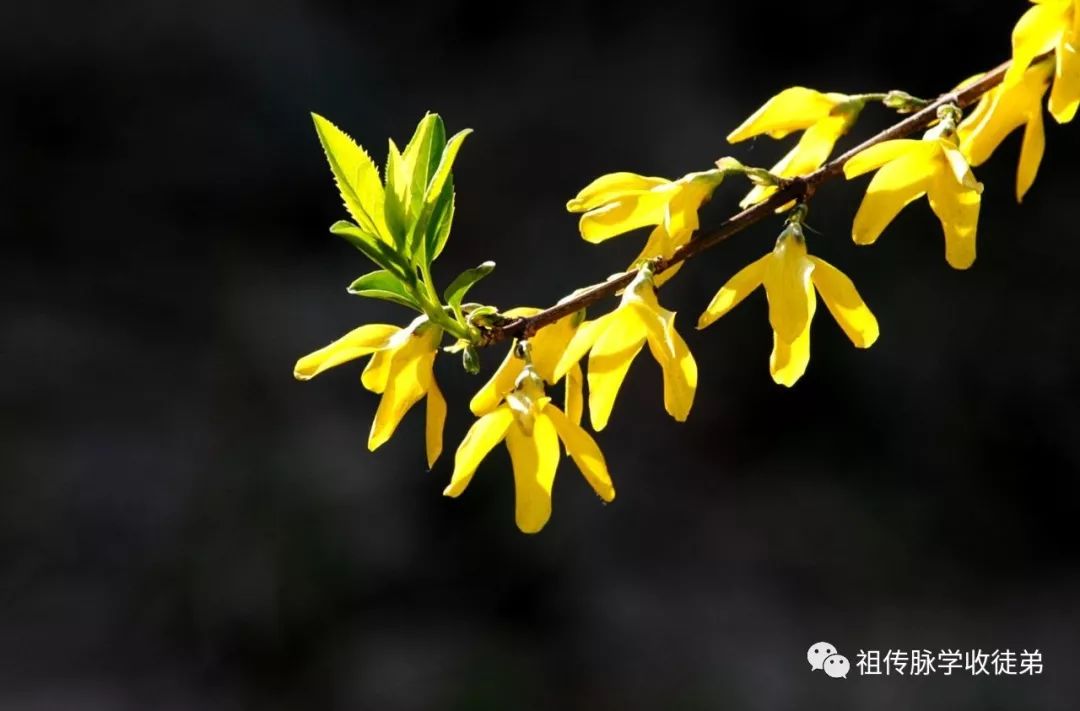
I Copyright Statement: Respect knowledge and labor; please retain copyright information when reprinting. The copyright of the content published on this platform belongs to the relevant rights holders. If there are any improper uses, please feel free to contact us for negotiation.
I Submission and Cooperation Email: [email protected]
【Cautionary Statement】 All works not marked as original are reprinted, translated, or excerpted from other media. The purpose of reprinting, translating, or excerpting is to convey more information and does not represent the views of this site or its sub-sites, nor does it guarantee the accuracy, reliability, or completeness of the content. Other media, public accounts, or individuals must retain the source of this site when reprinting or using it and bear legal responsibility. This subscription account maintains neutrality regarding the statements and opinions expressed in the text and does not provide any express or implied guarantees regarding the accuracy, reliability, or completeness of the content.
【Special Reminder】: If you do not wish for your work to appear on this site, please contact us to request its removal.
Currently, over 100,000 people have followed and joined us.

















See more latest information on TCM, Chinese medicine, health, and wellness.
Please long press the QR code below to follow us.
Recommended Excellent TCM Public WeChat Professional Platform

Long press the QR code above to follow, “National TCM Development Cooperation Information Sharing Platform“
Public Account ID: zyjyccbk
Long press the QR code above to follow, “Treasure House of Experience of Famous Old TCM Physicians” Welcome!
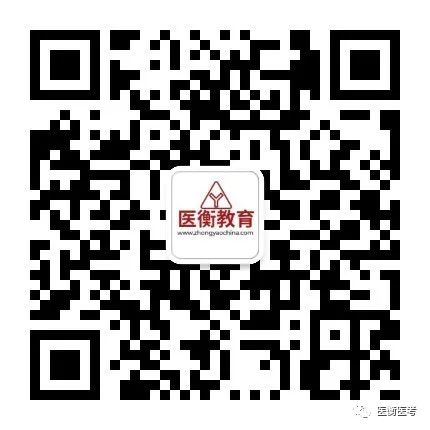
TCM, Clinical, Oral Practitioner Examination, TCM Specialization, Licensed Pharmacist, Health Manager, Health Qualification Examination


